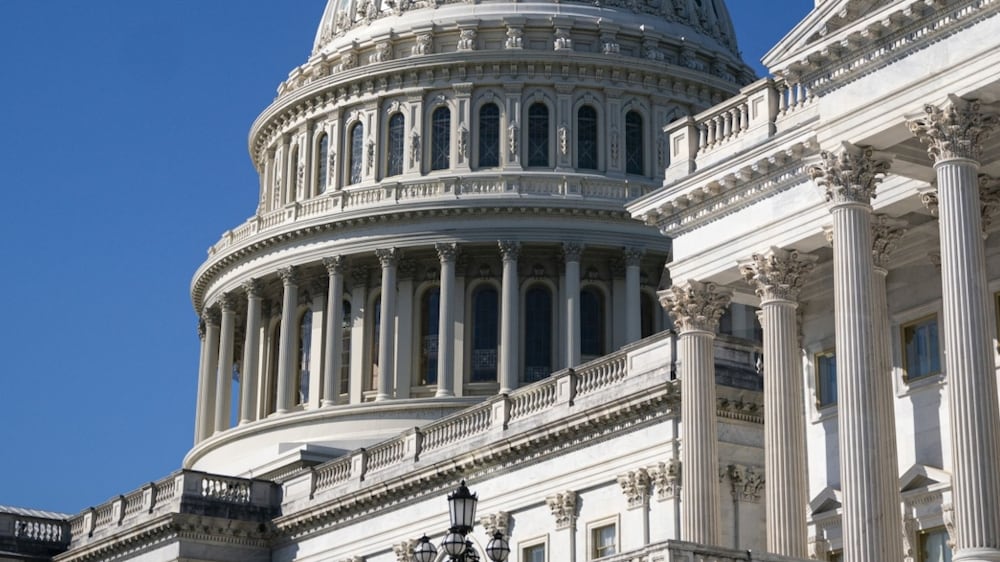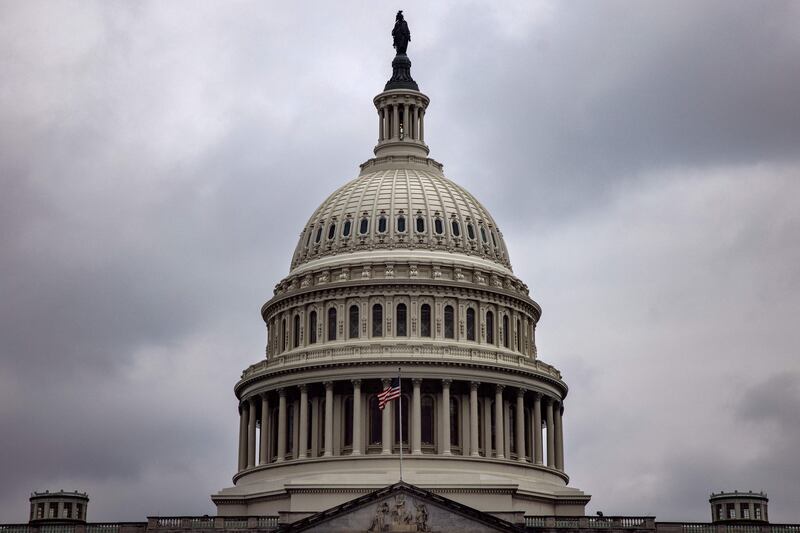US congressional negotiators on Sunday unveiled a bill to fund the government through the rest of the fiscal year that began in October, as politicians faced yet another threat of a partial shutdown if they fail to act by Friday.
The bill sets a discretionary spending level of $1.66 trillion for fiscal 2024, a spokesman for Democratic Senate majority leader Chuck Schumer said.
It fills in the details of an agreement that Mr Schumer and Republican House of Representatives Speaker Mike Johnson set in early January.
Legislators last week passed the fourth stopgap measure since October 1 to keep the government funded, and set themselves two quick deadlines to act.
Funding for a part of the government including the Department of Transportation and the Food and Drug Administration running out on March 8 and most other federal agencies partly shutting down on March 22.
The bill “maintains the aggressive investments Democrats secured for American families, American workers and America’s national defence”, Mr Schumer said in a statement.
While the top leaders of Congress have agreed to the deal, it still faces some challenges, notably by hardline Republicans in the House, who have repeatedly called for sharp spending cuts and typically do not vote for spending bills.
What is a US government shutdown? – video
What is a US government shutdown?

That hardline energy, which led to the removal of Mr Johnson's predecessor Kevin McCarthy, has also gained steam in the traditionally more staid Senate, leading to top Republican Mitch McConnell's decision last week to step down from his leadership role at the end of this year.
House Republicans were promoting the bill as a win, although with a deeply divided caucus they had little negotiating power.
The bill includes a 10 per cent cut in funding to the Environmental Protection Agency, 7 per cent to the Bureau of Alcohol, Tobacco and Firearms, and 6 per cent to the FBI.
“Non-defence spending is relatively flat, and in this time of significant inflation, that's a big deal,” a House Republican leadership aide said on Sunday.
“We made the Democrats eat a lot of their own priorities as offsets, just to get to level funding.”
Mr Schumer, meanwhile, emphasised that the bill fully funds a health programme for low-income families, “makes critical investments in our infrastructure and strengthens programmes that benefit services for our veterans”.
The continuing brinkmanship and the nation's $34 trillion debt has unnerved credit agencies.
Moody's downgraded its financial outlook on the US from “stable” to “negative” in November, citing large fiscal deficits and increasing political polarisation, although Fitch on Friday affirmed a “stable” outlook.
The House will have to vote on the bill before the Senate can take up the package before Friday, Mr Schumer said.






